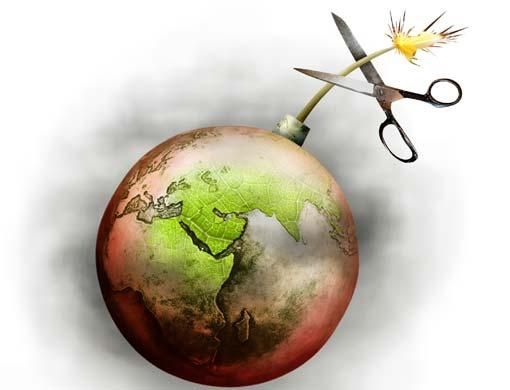Dubai: Businesses in the Middle East are warming up to climate change.
Some are calling for new environmental laws which clamp down on unsustainable practices, while others are showing off their contribution in the fight against greenhouse gases.
This new-found environmental consciousness seems to cut across all industries from car companies to spa operators.
Swedish car manufacturer Volvo, which is turning to clean energy 'to protect the environment from global warming threats', says it is keen to introduce its initiatives in the Arab region.
"We have seen first signs of environmental awareness in the Middle East and I have no doubt that this will continue. I am confident that Volvo can play its part in this development," said Greg Maruszewski, regional managing director of Volvo GCC.
In a survey carried out by the MEED magazine "to determine the attitudes and perceptions of the Gulf's booming business sector towards climate change," 99 per cent of respondents said businesses have an obligation to behave in a sustainable way and 84 per cent of respondents said this should be a legal requirement.
Several businesses have already sensed the changing public mood on environmental matters.
And it is not just players from heavy industries such as automobiles, blamed for releasing significant amounts of carbon dioxide into the atmosphere, that want to send out a positive message on the environment.
Sectors
Shaza Hotels, which plans to launch properties in several Gulf cities, said its projects would be certified to Leadership in Energy and Environmental Design (LEED) standards, a benchmark for eco-friendly buildings.
"There is a great synergy between the cultural traditions of the region and a deep respect for the environment. Shaza has therefore taken the initiative to obtain this certification, as part of a shift towards environmentally sustainable hotels," said Christopher Hartley, chief executive office of Shaza Hotels.
Thailand-based Six Senses Resorts and Spas, looking for projects in the region, said its flagship resort Soneva Fushi in the Maldives is the first of the group's properties to implement a programme to offset its flight emissions of its guests.
It aims to become "carbon neutral" by 2008 and achieve the "carbon-free" status by 2010.
However, environmental groups say not everything that the companies say can be taken at face value as their initiatives can be both genuine and driven by marketing goals.
Kenneth Richter, a member of the corporate and trade team of Friends of the Earth, favours legally binding campaigns. "Generally we promote legislation on corporate accountability rather than rely on companies to do something voluntarily. There should be level a playing field for all companies," he said.
Eve Carpenter, director of programme operations for Earthwatch in Europe, said the group has encountered companies that want to make a difference in the profit-driven corporate world.
"We have noticed many companies making a real commitment to the environment," Carpenter said, adding that it is in the interest of businesses to fight climate change.













